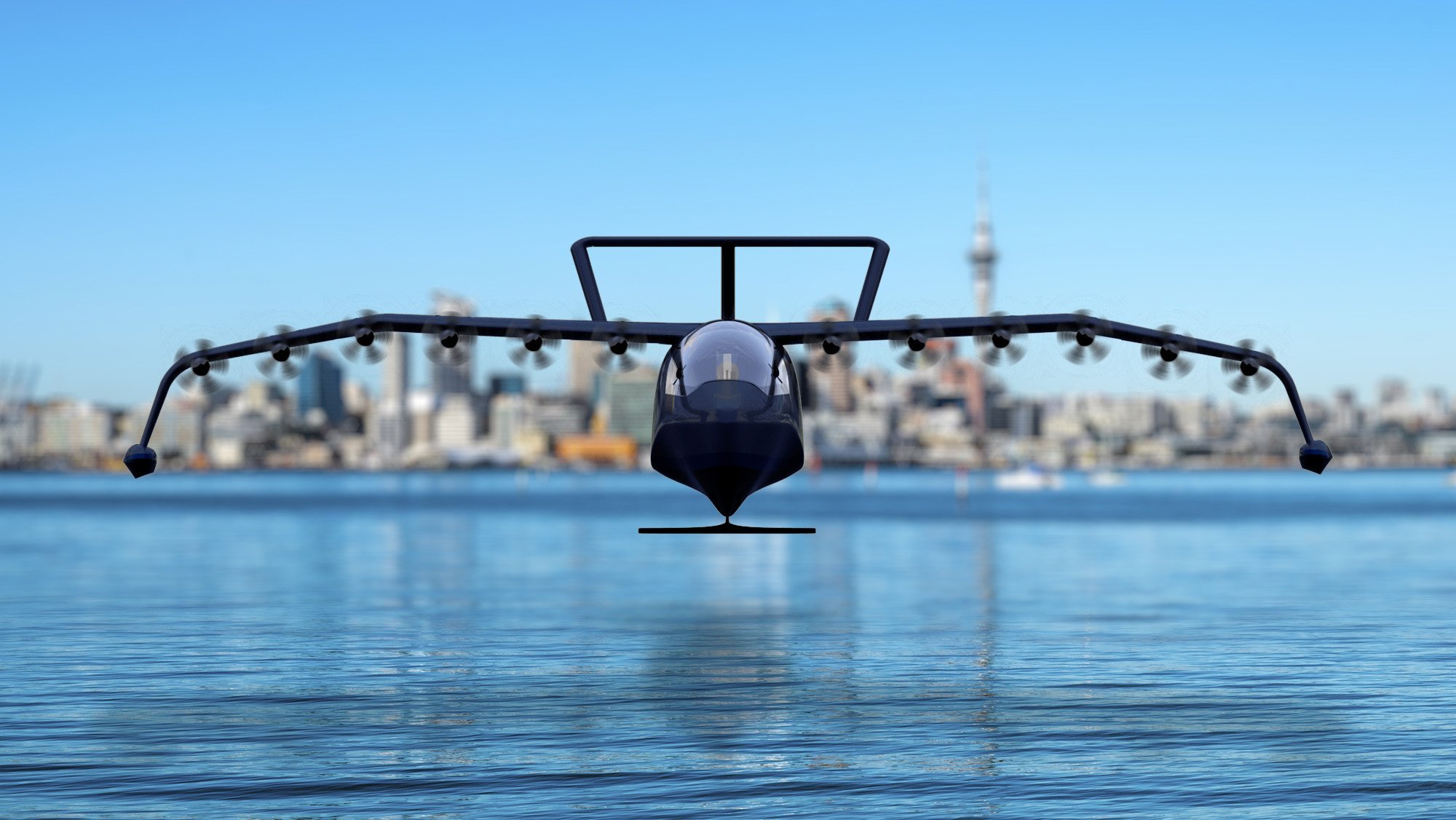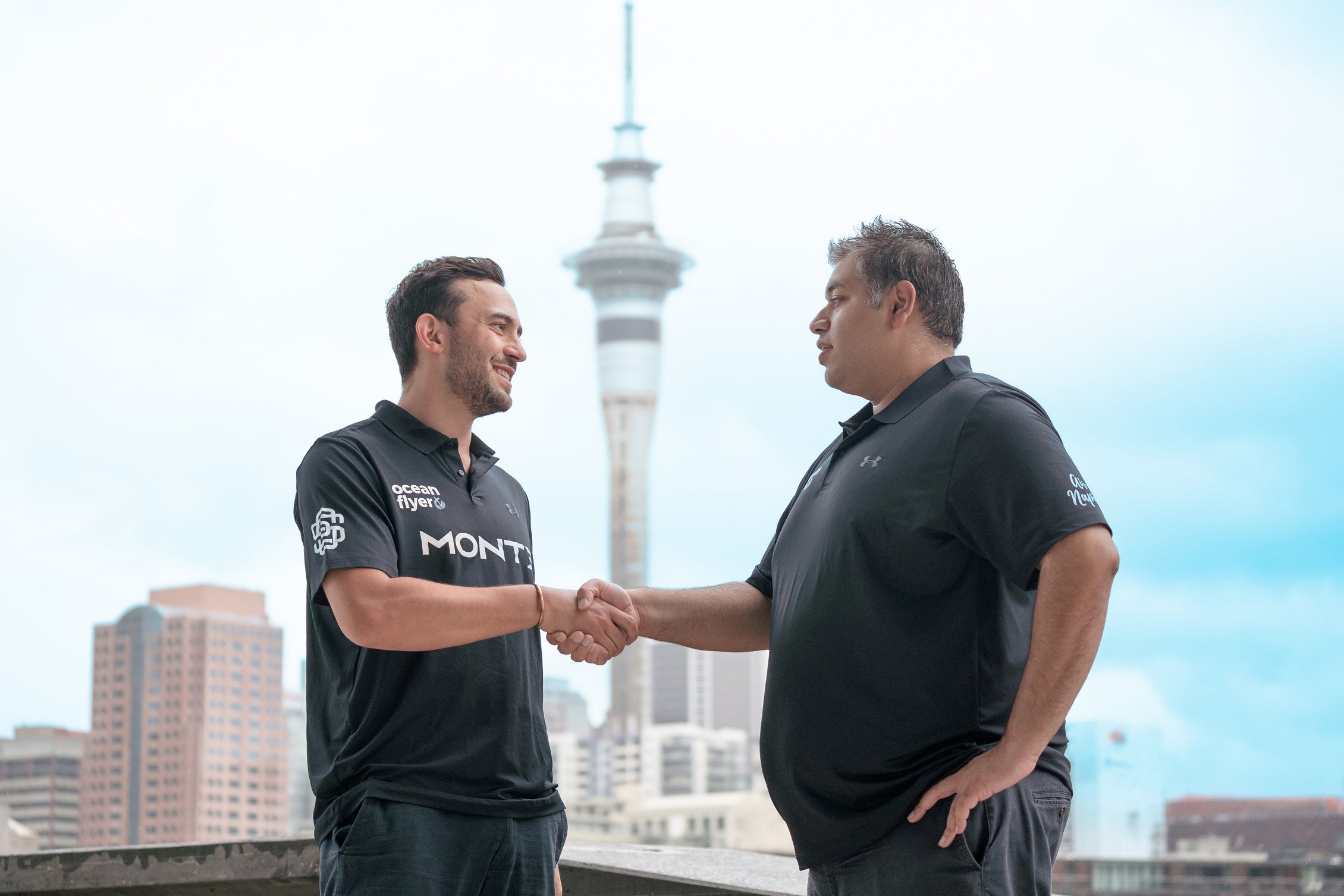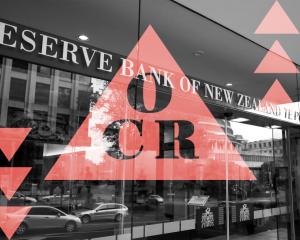
"Connectivity breeds prosperity."
So says University of Otago alumni Shah Aslam who is neck-deep in an overwhelmingly ambitious project to revolutionise the public transport industry in New Zealand.
Mr Aslam, who is in his 30s, is chief executive of Ocean Flyer which signed a $700 million agreement in April 2022 with REGENT — the world’s first all-electric seaglider manufacturer — to bring 25 seagliders to New Zealand.
Ocean Flyer is the first seaglider-only company set up in the world to bring the fully-electric, sustainable, fast, new mode of mass public transport, on track for delivery mid-decade. It is believed to be the country’s largest ever private investment in transport.
The zero-emission, high-speed, low-flying vessels have been developed by a team of Massachusetts Institute of Technology (MIT) graduates and ex-Boeing engineers.
The company, which is backed by high-profile investors Peter Thiel and Mark Cuban, and airlines such as Japan Airlines and Hawaiian, has an order book of $15 billion.
Among that book is Ocean Flyer’s order; the company recently signed a $145m deal with UK-based global asset manager MONTE to finance the acquisition.
Speaking from Napier, where he is chief executive and owner of Air Napier, Mr Aslam acknowledged there had been knockers saying it would never work.
One cheery soul said they had just watched the blockbuster movie Jaws and a "big shark was going to jump out of the water and gobble it [the seaglider] up".
Negativity did not deter the entrepreneur.
"If people aren’t reaching out to you telling you it’s not going to happen, you risk losing motivation to make it happen," he said.
On the flipside, there had been loads of support, including hundreds of messages from parents asking what their children needed to study at school now so they could be a seaglider pilot in 10 years’ time.
Born in Pakistan, Mr Aslam’s family shifted to Japan when he was about six months old as his father was a diplomat.
He later returned to Pakistan as his parents wanted him to understand more about his culture.
In 2008, he began his studies at the University of Otago where he completed a commerce degree with a double major in accounting and finance and a post-graduate diploma in finance, and then worked for the Otago University Student Association for about a year, in accounts.
Returning to do his Masters of Business Administration (MBA) at the Otago Business School, he spent the second year at the National University of Singapore as part of a University of Otago exchange programme.
Returning to New Zealand in 2016, he got a job with the Bank of New Zealand in institutional finance which he enjoyed and where he made some good connections.
Then, about 4 o’clock one morning, he happened to see Air Napier was for sale. By 9am, he had signed a sale and purchase agreement for the business.
Mr Aslam recalled a careers day when he was in his first year studying accounting.
Representatives from big companies came to speak and he recalled one man who said his dream, since he was a child, had been to work for Disney and he ended up in the US working for Disney.
At the time, Mr Aslam thought how awesome it would be to have a dream and to make it come true.
During his own MBA, he had to give a presentation on what he wanted to do in the future. His own dream had always been to be part of an aviation company, not as a pilot but in management.
During Covid-19, Air Napier helped a lot of people, including transporting pets.

It was accessing people in need, moving cash for the Reserve Bank and delivering newspapers, the only means of communication for cut-off communities.
Transportation was an industry with little competition; that did not just apply to the likes of Air New Zealand but also ferries and rail.
There had been no innovation and movement in recent times so a good starting point was looking at how to expand, he said.
Mr Aslam was fortunate his parents had lived and travelled throughout the world and he got exposure "at how things are done and how things could be done".
Looking at the transport industry throughout New Zealand, probably "billions and billions" of dollars in infrastructure was needed to make it efficient and that money had to come from somewhere.
New Zealand was an island nation with "blue highways" around it and he felt that water was under-utilised.
There were a lot of benefits to water which did not break or crack, he said.
It was December 8, 2021, when Mr Aslam was scrolling through Linkedin when he saw REGENT’s seaglider pop up.
He messaged the company’s co-founder and chief executive Billy Thalheimer and received a response within 24 hours.
Mr Thalheimer had drawn a map and said a seaglider would be perfect for the likes of a flight between Wellington to Blenheim, adding it could be a "real game changer" for New Zealand.
After several more conversations and some due diligence, Mr Aslam placed the order which comprised fifteen 12-seaters and ten 100-seaters.
He had looked at a lot of options in aviation but could not find anything commercially viable, he said.
The amount of progress in technology in the past 20 years had been "phenomenal" and that growth now needed to "go beyond our favourite food delivery app".
People travelled to space and attention needed to be given to what could be done on Earth to make life more convenient and affordable.
Regional connectivity was a core element which was missing in New Zealand. If Dunedin did not have the university, he feared the area south of Christchurch would be "forgotten", like north of Auckland.
Speaking off the top of his head, Mr Aslam reckoned a seaglider flight from Dunedin to Timaru would take about 30 or 35 minutes at a cost of under $100 per seat.
New Zealand was based around work-life balance and people liked to get home and relax at the end of the day. The "Kiwi dream" still remained of a house and a bach and, collectively, seagliders would save people "millions of hours".
"If nothing else, it [Ocean Flyer] is a way for people to create some memories, get access to their life events without going bankrupt and access to services without breaking the bank," he said.
It was not aimed at a particular demographic.
Children needed access to education, adults in the regions needed access to healthcare. Then there was the likes of tourism and business.
Mr Aslam anticipated eventually being able to start at Stewart Island and travel up the country in a seaglider. He expected the initial order would not be nearly enough.
It had not all been smooth sailing — "it hasn’t come without its own set of headaches" — but "challenges make you stronger", he said.
As for his own work-life balance, Mr Aslam said seagliders were providing that at the moment. But it was fun and, when they finally arrived, it was going to be a "phenomenal day".












